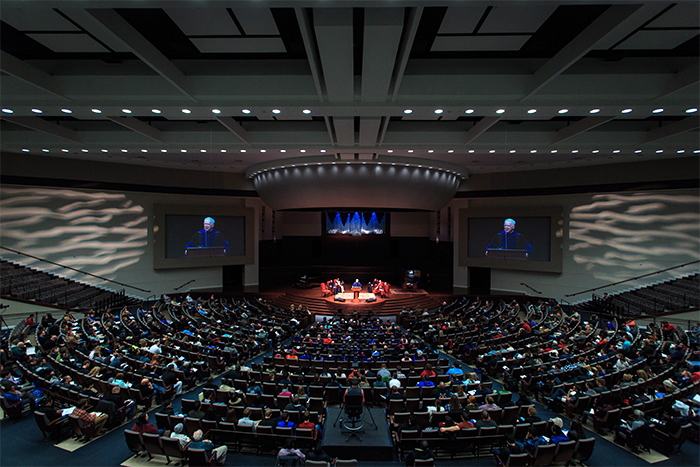Preparation for ministry is preparation for martyrdom, Patterson says

Southwestern Seminary held its spring convocation on Jan. 21, exactly 491 years after the Anabaptist movement began in the home of Felix Manz in Zurich, Switzerland. On Jan. 21, 1525, during a Bible study in Manz’s home, George Blaurock asked Conrad Grebel to baptize him with the “true Christian baptism” upon his profession of faith. Blaurock then proceeded to baptize the other members of the group, thus beginning the Swiss Anabaptist movement and the recovery of key biblical teachings concerning baptism, the Lord’s Supper, and God’s design for the church and the Christian life.
In his address to the student body, Southwestern Seminary President Paige Patterson said Baptists owe much to the Anabaptist movement, for they “rediscovered” the biblical teaching of not only believer’s baptism, but the believer’s church. “It was the insistence of those who gathered that night in the home of Felix Manz that, in order to be a part of the church of the Lord Jesus Christ, one needed to have been born again,” Patterson explained. “He needed to have had an experience of heartfelt sorrow for sin, which led him, in turn, to repent of that sin and to place his faith in Christ alone.”
“You would think the whole world would rejoice in that, would you not?” Patterson continued. “Quite to the contrary, not only were they opposed by the secular establishment of the day, but they were also opposed by all of the religious establishments of the day—both Roman Catholic and Protestant.”
This opposition manifested in the majority of Anabaptist leaders being martyred, some in especially horrific ways. Looking back at the ghastly treatment these Bible-believing Christians faced, Patterson concluded that the history of the church is a history of bloodshed and martyrdom.
Patterson preached from Revelation 6:9-11, wherein the Lamb opens the fifth seal and John discovers under the altar the souls of “those who had been slain for the word of God and for the testimony which they held.” The souls cried out, “How long, O Lord, holy and true, until You judge and avenge our blood on those who dwell on the earth?” The answer, which Patterson characterized as a “strange message,” was the presentation to each of them of a white robe and the command to rest “a little while longer, until both the number of their fellow servants and their brethren, who would be killed as they were, was completed.”
Expounding on this lattermost verse, Patterson said, “There will be more bloodshed. More of us will have to give our lives for Christ.”
“Beware if you’ve come to seminary,” he continued. “It is a serious step. As you begin to prepare for ministry, you’re preparing for martyrdom. With the grace of God, maybe most of you will not have to die, but some of you will.”
Patterson proceeded to clarify to students that they have not come to Southwestern simply to obtain a degree, nor have they come simply to prepare for vocational ministry. More importantly, they have come in order to prepare for “a life of sacrificial service to the Lord that may very well end in martyrdom.”
Echoing the words spoken to the martyred souls in Revelation 6, Patterson said, “You have to wait a little while. Judgment is not yet, but it is coming; it is sure. But while our Lord tarries, it is our opportunity to introduce the world to Christ.”
Patterson concluded his sermon by extending an invitation, noting that even in a seminary chapel there may be someone who has not truly placed his/her faith in Christ. Three people responded, meeting professors stationed at the front of the chapel for prayer and counsel.
The convocation service also saw the introduction of newly appointed and elected faculty: Justin Hiester, instructor of missions in the College at Southwestern; Katie McCoy, instructor of women’s studies in the College at Southwestern; Michael Crisp, assistant professor of Baptist studies in the Havard School of Theological Studies; Nathan Burggraff, assistant professor of music theory; David Toledo, assistant professor of music ministry; Ben Caston, associate professor of voice; and Barry McCarty, professor of preaching and rhetoric. In addition, Tamra Hernandez, executive research and editorial assistant to the president, was appointed faculty status.



